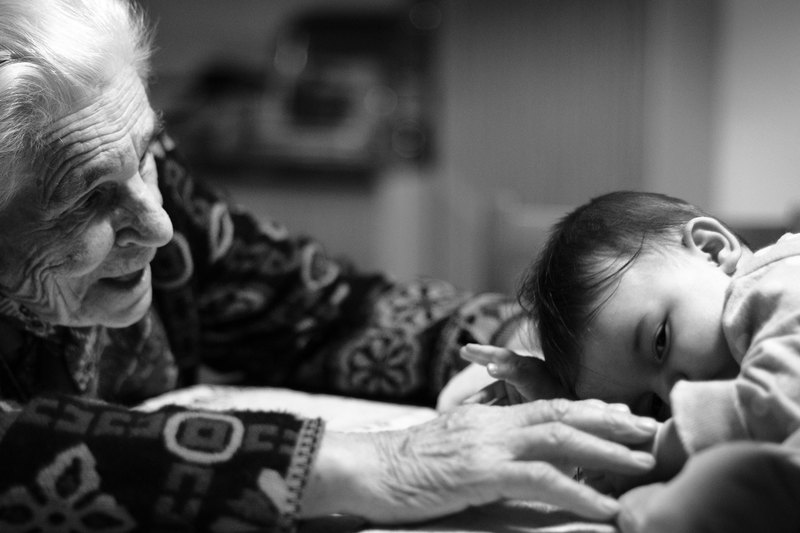Government ‘systematically denied’ care for elderly, young children during global pandemic
31 July 2023 | Story Niémah Davids. Photo Unsplash. Read time 7 min.
As the world reeled from the direct effects of the COVID-19 pandemic in 2021, Juhi Kasan started her master’s in industrial sociology at the University of Cape Town (UCT). By then, thousands of people had lost their lives in South Africa (millions globally) and the socio-economic effects of the pandemic were widespread – affecting all sectors of society – especially the poor and marginalised in a myriad of ways.
Of particular interest for Kasan, was the impact of the pandemic on two vulnerable sectors – the elderly who called long-term care (LTC) facilities in the country their home, and young children who attended early childhood development centres (ECD) – an essential step for their learning and development before primary school. Kasan was eager to establish how government supported these vulnerable groups during the pandemic and decided to use her master’s research to get the answers she needed.
“It was important for me to understand the type of support government had provided these often-overlooked sectors of our society, who we tend to forget played a huge role in contributing to the kind of country we have today [the elderly], and who will play an important role in the country we want to build going forward [young children],” she said.
As Kasan adds the finishing touches to her thesis and prepares for submission, UCT News sat down with her for some background on her work and asked her to share some of her research findings.
Niémah Davids (ND): Your research analysed how well government supported ECD centres and LTC facilities during the height of the pandemic. What has your work revealed?
“The importance of care centres for the elderly and young children was not at all reflected in government’s response to the pandemic.”
Juhi Kasan (JK): The purpose of my research was to unpack and understand the status of social care provision in South Africa. The COVID-19 pandemic revealed the salient role of care – both paid and unpaid – in maintaining social and economic well-being. However, the importance of care centres for the elderly and young children was not at all reflected in the government’s response to the pandemic, which can now be characterised as slow and, ultimately, negligent.
Further, my thesis unpacks what may have contributed to this response by tracing certain normative framings around care in policy documents like the White Paper on Social Welfare. One of the important questions I ask is: If the family, particularly female family members, are regarded as the primary caregiver, what is the role of government to provide additional care and how does this approach to caregiving influence how social welfare programmes are executed?
ND: Why was this topic so important to pursue?
JK: I believe that the quality and delivery of care in a country indicates how well the country is progressing. Care for older and younger folk is at the centre of supporting, maintaining and reproducing life. Therefore, it is important to note that we as a country have systematically denied care (both paid and unpaid) the status it deserves during the pandemic. And it’s important that we acknowledge this to reevaluate the work that has been done in the past and that should still be done in order to move us forward.
ND: What role did your community play with your topic of choice?
JK: My area of research has always focused largely on systems of care in and around us. So, my community definitely played a role in my decision to pursue this topic. Just by way of observing my surroundings during this global health crisis, so many questions came to the fore that I needed to find answers to.
ND: Explain why adequate systems of care for older and younger folk are so important.
JK: On average, women in South Africa are understood to perform most of the care duties in the home, for the elderly and for children. Research indicates that they perform 2.6 times more care duties than men. Care becomes burdensome when there are not enough formal support structures to help the carer. And what happens then? The carer begins to face other challenges like physical, mental and psychological depletion, which was sadly exacerbated during the pandemic because there were many other challenges to contend with.
South Africa faces profound inequality, high levels of unemployment and rampant poverty. Under these conditions it is becoming more and more difficult to provide adequate care through the family unit. Given our progressive constitution, the duty to care for the elderly and children should also be the responsibility of government, and it must be taken seriously.
ND: What important theme has emerged from your research that needs to be addressed?
JK: My thesis demonstrates that South Africa needs to adapt its underlying approach to care for the elderly and young children to help us inform how we prioritise these sectors. And we desperately need this, if you take into account government’s sluggish and negligent response to ECD centres and LTC facilities during the pandemic.
ND: What kind of approach do you recommend government adopts to support these vulnerable sectors of society?
“We need to start by developing a concrete policy around care. It doesn’t exist in South Africa.”
JK: We need to start by developing a concrete policy around care; it doesn’t exist in South Africa. And while it’s a mere starting point, it’s crucial to the process. We need to regard care for all persons the same way we regard physical infrastructure like roads and bridges, and the many other important themes that dominate our agendas in this country. We all require care and the intensity of this requirement changes over the course of our lives. Viewing care in this way needs to enter the policy space in a meaningful way.
ND: As you prepare for submission, what would you highlight as most rewarding about this research journey, and why?
JK: It’s got to be the fact that my research is bringing to the fore issues that affect the marginalised and issues that are not given prominence despite its importance. Government failed to provide LTC facilities and ECD centres with the assistance it needed during the pandemic, and I hope that with this research we can start to change that.
I hope that this work also adds to the other important contributions already made by other scholars, activists and civil society to advocate for change for these vulnerable sectors.
 This work is licensed under a Creative Commons Attribution-NoDerivatives 4.0 International License.
This work is licensed under a Creative Commons Attribution-NoDerivatives 4.0 International License.
Please view the republishing articles page for more information.










